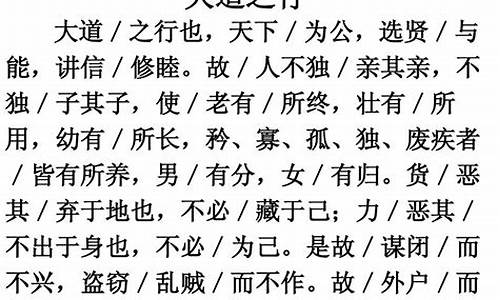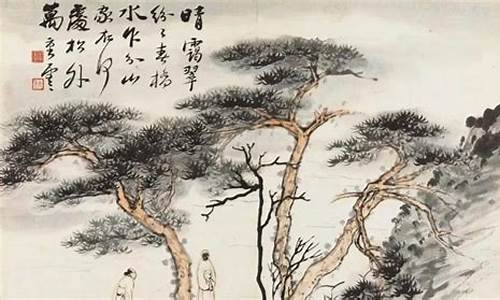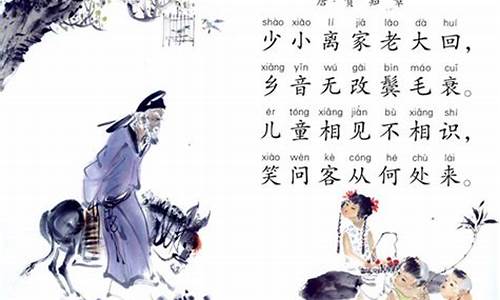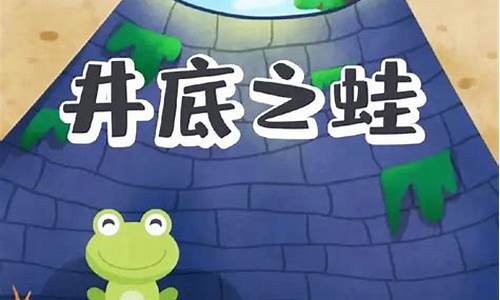1.男孩比赛适合朗诵木兰辞吗
2.木兰辞的翻译求解
3.[54首经典古诗词(朗诵版),,值得收藏!]一年级经典古诗文朗诵比赛
4.木兰辞拼音
5.木兰辞的朗诵技巧
6.朗诵《木兰辞》,配什么背景音乐合适?
7.木兰辞朗诵适合哪一首琵琶曲
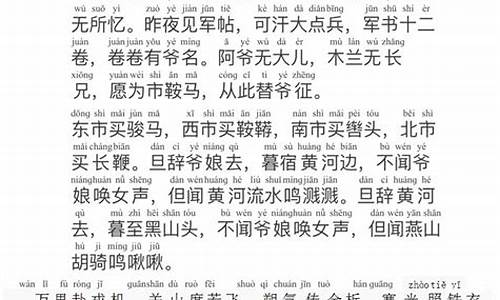
适合朗诵大赛一年级的古诗词如下:
《一剪梅》李清照、《声声慢》李清照、《钗头凤》陆游、《钗头凤》唐婉、《江城子》苏轼、《雨霖铃》柳永、《青玉案元夕》辛弃疾、《如梦令》李清照、《水调歌头》苏轼、《虞美人》李煜、《鹊桥仙》秦观、《渔家傲秋思》范仲淹。
《木兰辞》纳兰容若、《长相思》纳兰容若、《蝶恋花》欧阳修、《蝶恋花》柳永、《浣溪沙》晏殊、《踏莎行》欧阳修、《唐多令》吴文英、《卜算子》李之仪、《千秋岁》张先、《江城子密州出猎》苏轼、《苏幕遮怀旧》范仲淹。
《扬州慢淮左名都》姜夔、《摸鱼儿雁丘词》元好问、《兰陵王》周邦彦、《念奴娇赤壁怀古》苏轼、《菩萨蛮书江西造口壁》辛弃疾、《京口北固亭怀古》辛弃疾、《天净沙》马致远、《静夜思》李白、《商山早行》温庭筠。
朗诵性质:
朗诵的内容一般都是诗歌、散文、等文学作品。一些非文学作品,如社论、书信等,一旦作为朗诵材料,往往也会偏向于表现某个人的某种思想感情,自然带上明显的文学色彩。文学艺术也是语言的艺术。作品的人物形象、故事情节都是运用语言表现的。
有声语言最能显示语言的风和魅力。文学作品通过朗诵可以再现作品描写的人物形象、环境气氛和生活场景,充分发挥它的艺术魅力和教育作用。
朗诵是一种比较精细、高级的有声语言艺术。朗诵者必须具备一定的文学修养,要能分析欣赏各种体裁的文学作品,这是朗诵表情达意的前提;朗诵者必须具备一定的语言修养,要熟练掌握标准发音和发声技巧。
要善于正确地运用语调语气,这是表情达意的关键;朗诵者必须具备一定的舞台表演艺术的修养,要敢于在大庭广众之中说话,要能正确地发音,有自然的表情,这是朗诵表情达意的重要条件。
男孩比赛适合朗诵木兰辞吗
中华民族是苦难深重的民族,在她历史的书页上写满了生灵涂炭的战争,但中华民族也是英雄辈出的民族。战争,虽然给人民带来了沉重的苦难,但却使一个个英雄脱颖而出,留下了绝美的诗篇。有一位古代巾帼英雄,她代父从军,驰骋疆场;她,鄙弃荣华,谢绝高官;她眷恋故土,毅然返乡。一曲木兰辞,使人们记住了这个流芳后世的名字,并让她在浩瀚的时空里闪现不朽的光芒。下面请欣赏诗朗诵《木兰诗》。
木兰辞的翻译求解
这首诗是适合男孩子朗诵的。
朗诵木兰辞不仅仅是女性角色的表演,它是中国古代文学中的经典作品,通过描述木兰代父从军的故事,表达了忠诚、勇敢和家国情怀等主题。男孩通过朗诵木兰辞,可以展现出自己对古代文学和传统文化的理解和表达能力,同时也能够提升自己的语言表达和情感表达能力。
此外,朗诵木兰辞还可以培养男孩的情感表达能力。通过朗诵这篇文学作品,男孩可以学会通过语音、语调、情感等方式,将人物的内心世界和情感状态传达给观众。这对于男孩来说是一个很好的锻炼,可以帮助他们更好地理解和表达情感,提高沟通能力。
[54首经典古诗词(朗诵版),,值得收藏!]一年级经典古诗文朗诵比赛
木兰词
唧唧复唧唧,木兰当户织。不闻机杼声,唯闻女叹息。问女何所思,问女何所忆。女亦无所思,女亦无所忆。昨夜见军帖,可汗大点兵。军书十二卷,卷卷有爷名。阿爷无大儿,木兰无长兄。愿为市鞍马,从此替爷征。
当木兰在家里纺织时," 唧唧 "的声音不断发出,而织布机所发出的声却听不到,只可听到木兰不断叹息。若问木兰有甚麼担心和忧虑,木兰则说不会为自己担心和忧愁,但昨晚收到军帖和十二卷军书,获悉皇帝要徵兵打仗,木兰的父亲名字则在徵兵入伍的行列,木兰的父亲既无精壮的儿子,木兰又无兄长,因此木兰希望有一匹良驹,从此可代父从军。
东市买骏马,西市买鞍鞯。南市买辔头,北市买长鞭。
分别到市集的东面购买一骏马,在西面购买鞍鞯,在南面购买辔头,在北面购买长鞭。
旦辞爷娘去,暮宿黄河边。不闻爷娘唤女声,但闻黄河流水鸣溅溅。
在黎明告别父母出发,晚上在黄河边露宿,听不到父母的呼唤,但听到黄河流水溅溅的声响。
旦辞黄河去,暮至黑山头。不闻爷娘唤女声,但闻燕山胡骑鸣啾啾。
在黎明时离开黄河继续行程,晚上到达黑山,听不到父母的呼唤,只听到燕山敌人马匹啾啾的叫声。
万里赴戎机,关山度若飞。朔气传金柝,寒光照铁衣。将军百战死,壮士十年归。
赶赴万里机密性的军事行动,像飞一样度过重重关口与山岭。北方的寒气传来打更的梆子声,寒冷的月光照在铁甲战袍上。身经百战的将军战死了,经过十年的征战,壮士终於凯旋归来。
归来见天子,天子坐明堂。策勋十二转,赏赐百千强。
回来见天子,天子高坐明堂。依照所记的功勋升到极高的职位,赏赐成千成百。
可汗问所欲,「木兰不用尚书郎。愿驰千里足,送儿还故乡。」
皇帝问木兰想要什麼?「木兰无意作尚书郎,希望借我日行千里的精壮骆驼,送我回故乡。」
爷娘闻女来,出郭相扶将。阿姐闻妹来,当户理红妆。小弟闻姐来,磨刀霍霍向猪羊。开我东阁门,坐我西阁床。脱我战时袍,著我旧时裳。当窗理云鬓,对镜帖花黄。
爹娘听到女儿回来,互相扶持著走出外城去迎接。姊姊听到妹妹回来,便到房间梳妆打扮。弟弟听到姊姊回来,赶紧磨刀宰杀猪羊。打开我卧室东边的门,坐上我卧室西边的床。脱去我战时的衣袍,穿上我从前的服装。对著窗整理乌黑柔美的鬓发,对著镜子在额头上贴上花黄。
出门看火伴,火伴皆惊忙。「同行十二年,不知木兰是女郎。」
出门见军中的同伴,同伴们都惊讶的说:「一起生活了十二年,竟然不知木兰是女郎。」
雄兔脚扑朔,雌兔眼迷离。双兔傍地走,安能辨我是雄雌。
雄兔雌兔脚步一样跳跃,目光一样模糊。若两兔靠近在地面奔跑时,又如何能辨别雄雌呢?
[英译]木兰辞
唧唧复唧唧,木兰当户织。
不闻机杼声,惟闻女叹息。
问女何所思,问女何所忆。
女亦无所思,女亦无所忆。
昨夜见军帖,可汗大点兵,
军书十二卷,卷卷有爷名。
阿爷无大儿,木兰无长兄。
愿为市鞍马,从此替爷征。
东市买骏马,西市买鞍鞯,
南市买辔头,北市买长鞭。
旦辞爷娘去,暮宿黄河边。
不闻爷娘唤女声,但闻黄河流水鸣溅溅。
旦辞黄河去,暮至黑山头,
不闻爷娘唤女声,但闻燕山胡骑鸣啾啾。
万里赴戎机,关山度若飞。
朔气传金柝,寒光照铁衣。
将军百战死,壮士十年归。
归来见天子,天子坐明堂。
策勋十二转,赏赐百千强。
可汗问所欲,木兰不用尚书郎;
愿驰千里足,送儿还故乡。
爷娘闻女来,出郭相扶将;
阿姊闻妹来,当户理红妆;
小弟闻姊来,磨刀霍霍向猪羊。
开我东阁门,坐我西阁床,
脱我战时袍,著我旧时裳,
当窗理云鬓,对镜帖花黄。
出门看伙伴,伙伴皆惊忙:
同行十二年,不知木兰是女郎。
雄兔脚扑朔,雌兔眼迷离;
双兔傍地走,安能辨我是雄雌?
以下为翻译:
The Ballad of Mulan
Mulan's swift fingers flying to and fro
Crossed warp with woof in deft and even row,
As by the side of spinning-wheel and loom
She sat at work without the women's room.
but tho' her hand the shuttle swiftly plies
The whir cannot be heard for Mulan's sighs;
When neighbor asked what ills such mood had wrought,
And why she worked in all-absorbing though,
She answered not, for in her ears did ring
The summons of last evening from the King,
Calling to arms more warriors for the west,
The name of Mulan's father heading all the rest.
But he was ill - no son to take his place;
Excuses meant suspicion and disgrace.
Her father's honor must not be in dou;
Nor friends, nor foe, his stainless name shall flout.
She would herself his duty undertake
And fight the Northern foe for honor's sake.
Her purpose fixed, the plan was soon evolved,
But none should know it, this she was resolved;
Alone, unknown, she would the danger face,
Relying on the prowess of her race.
A charger here, a saddle there, she bought,
And next a bridle and a whip she sought;
With these equipped she donned the soldier's gear,
Arming herself with bow and glittering spear.
And then before the sun began his journey steep
She kissed her parents in their troubled sleep,
Caressing them with fingers soft and light,
She quietly passed from their unconscious sight;
And mounting horse, she with her comrades rode
Into the night to meet what fate forbode.
And as her secret not a comrade knew,
Her fears soon vanished as the morning dew.
That day they galloped westward fast and far,
Nor paused until they saw the evening star;
Then by the Yellow River's rushing flood
They stopped to rest and cool their fevered blood.
The turbid stream swept on with swirl and foam
DIspelling Mulan's dreams of friends and home.
Milan! Mulan! she heard her mother cry -
The waters roared and thundered in reply!
Mulan! Mulan! she heard her father sigh -
The river surged in angry billows by!
The second night they reach the Riber Black,
And on the range which feeds it, bivouac;
Mulan! Mulan! she hears her father pray -
While on the ridge the Tartars' horses neigh.
Mulan! Mulan! her mother's lips let fall -
The Tartars' camp sends forth a bugle call!
Aware that death may meet them on that day;
The winter sun sends forth a pallid light
Through frosty air on knights in armor bright;
While bows strung taut, and spears in glittering rows
Forebode the struggle of contending foes.
And soon the trumpets blare - the fight's begun;
A deadly melee, and the Pass is won!
The war went on, and many a battle-field
Revealed Mulan both bow and spear could wield;
Her skill and courage won her widespread fame,
And comrades praised, and leaders of great name.
Then after several years of march and strife,
Mulan and others, who had 'scaped with life
From fields of victory drenched with patriots' blood
Returned again to see the land they loved.
And when at last the Capital was reached,
The warriors, who so many forts had breached,
Were summoned to the presence of the King,
And courtiers many did their praises sing.
Money and presents on them, too , were showered,
And some with rank and office were empowered,
While Mulan, singled out from all the rest,
Was offered fief and guerdon of the best.
But gifts and honors she would gladly lost
If she might only be allowed to choose
Some courier camels, strong and fleet of pace,
To bear her swiftly to her native place.
And now, at last, the journey nears the end,
And father's mother's voices quickly blend,
In "Mulan, Mulan! Welcome, welcome, dear!"
And this time there was naught but joy to fear.
Her younger sisters decked the house with flowers,
And loving words feel sweet as summer showers,
Her little brother shouted Mulan's praise,
For many proud and hy boastful days!
The greetings o'er, she slipped into her room,
Radiant with country flowers in fragrant bloom,
And changed her soldier's garb for woman's dress;
Her head adorned with simple maiden's tress,
A single flower enriched her lustrous hair,
And forth she came, fresh, maidenly, and fair!
Some comrades in the war had now come in,
Who durst not mingle in the hy din;
But there in awe and admiration stood,
As bre men do before true womanhood.
For not the boldest there had ever dreamed,
On toilsome march, or when swords flashed and gleamed
In marshalled battle, or on sudden raid,
That their bre comrade was a beauteous maid.
这诗由Charles Budd翻译,虽说受到不少批评(多数是“翻译的意义本体论”者),但是这诗已先后在多个国家的电台、电视上被多次朗诵并获得好评,可以说是翻得很好的一首诗,读者可以细细品味下。
另一译本:
MU LAN
木兰辞
Long ago, in a village in northern China, there lived a girl named MuLan. One day, she sat at her loom weing cloth. Click-Clack! Click-Clack! Went the loom.
Suddenly, the sound of weing changed to sorrowful sighs. “What troubles you?” her mother asked. “Nothing. Mother,” Mulan softly replied.
Her mother asked her again and again, until Mulan finally said, “there is news of war.”
“Invaders are attacking. The emperor is calling for troops, Last night. I saw the draft poster and twelve scrolls of names in the market. Father’s name is on it.”
“But father is old and frail.” Mulan sighed. “How can he fight? He has no grown son and I he no elder brother.
I will go the markets. I shall buy a saddle and a horse. I must fight in father’s place.”
唧唧复唧唧,木兰当户织。不闻机杼声,唯闻女叹息。
问女何所思?问女何所忆?女亦无所思,女亦无所忆。
昨夜见军帖,可汗大点兵,军书十二卷,卷卷有爷名。
阿爷无大儿,木兰无长兄,愿为市鞍马,从此替爷征。
From the eastern market Mulan bought a horse, and from the western market, a saddle. From the southern market she bought a bridle, and from the northern markets a whip.
At dawn Mulan dressed in her armor and bid a sad farewell to her father, mother, sister and brother. Then she mounted her horse and rode off with the soldier.
By nightfall she was camped by the bank of the Yellow River. She thought she heard her mother calling her name. But it was only the sound of the river crying.
At sunrise MuLan took lee of the Yellow river. At dusk she reached the Peak of Black Mountain.
In the darkness she longed to hear her father’s voice but heard only the neighing of enemy horses far away.
东市买骏马,西市买鞍鞯,南市买辔头,北市买长鞭。
朝辞爷娘去,暮宿黄河边。不闻爷娘唤女声,但闻黄河流水鸣溅溅。
旦辞黄河去,暮至黑山头。不闻爷娘唤女声,但闻燕山胡骑声啾啾。
Mulan rode ten thousand miles to fight a hundred battles. She crossed peaks and passes like a bird in flight.
Nights at the camp were harsh and cold, but Mulan endured every hardship. Knowing her father was safe warmed her heart.
The war dragged on. Fierce battles raged the land. One after another, noble generals lost their lives.
Mulan’s skill and courage won her respect and rank. After ten years. She returned as a great general, triumphant and victorious!
The emperor summoned Mulan to the High Palace. He praised her for her brery and leadership in battle.
The court would bestow many great titles upon her. Mulan would be showered with gifts of gold.
“Worthy general, you may he your heart’s desire,” the Emperor said, “I he no need for honors or gold,” Mulan replied.
“All I ask for is a swift camel to take me back home.” The emperor sent a troop to escort Mulan on her trip.
万里赴戎机,关山度若飞。朔气传金柝,寒光照铁衣。将军百战死,壮士十年归。
归来见天子,天子坐明堂。策勋十二转,赏赐百千强。
可汗问所欲,“木兰不用尚书郎,愿借明驼千里足,送儿还故乡。”
In town, the news of Mulan’s return created great excitement. Holding each other, her proud parents walked to the village gate to welcome her.
Waiting at home, Mulan’s sister beautified herself.
Her brother sharpened his knife to prepare a pig and sheep for the feast in Mulan’s honor.
Home at last! Mulan threw open her bedroom door and smiled. She removed her armor and changed into one of her forite dresses.
She brushed out her shiny black hair and pasted a yellow flower on her face. She looked into the mirror and smiled again, hy to be home.
What a surprise it was when Mulan eared at the door! Her comrades were astonished and amazed. “How is this possible?” They asked.
“How could we he fought side by side with you for ten years and not he known you were a woman!”
爷娘闻女来,出郭相扶将。阿姊闻妹来,当户理红妆。
小弟闻姊来,磨刀霍霍向猪羊。开我东阁门,坐我西阁床。
脱我战时袍,著我旧时裳。当窗理云鬓,对镜贴花黄。
出门看火伴,火伴皆惊惶。同行十二年,不知木兰是女郎。
Mulan replied, “They say the male rabbit likes to hop and leap, while the female rabbit prefers to sit still. But in times of danger, when the two rabbits scurry by, who can tell male from female?”
“雄兔脚扑朔,雌兔眼迷离;双兔傍地走,安能辨我是雄雌!”
Mulan’s glory spread through the land. And to this day, we sing of this bre woman who loved her family and served her country, asking for nothing in return.
木兰辞拼音
1词曲30首
1、《一剪梅》 李清照
2、《声声慢》 李清照
3、《钗头凤 》陆游
4、《钗头凤》 唐婉
5、《江城子》 苏轼
6、《雨霖铃》 柳永
7、《青玉案·元夕》 辛弃疾
8、《如梦令》 李清照
9、《水调歌头》 苏轼
10、《虞美人》 李煜
11、《鹊桥仙》 秦观
12、《渔家傲·秋思》 范仲淹
13、《木兰辞》 纳兰容若
14、《长相思》 纳兰容若
15、《蝶恋花》 欧阳修
16、《蝶恋花》 柳永
17、《浣溪沙》 晏殊
18、《踏莎行》 欧阳修
19、《唐多令》 吴文英
20、《卜算子》 李之仪
21、《千秋岁》 张先
22、《江城子·密州出猎》 苏轼
23、《苏幕遮·怀旧》 范仲淹
24、《扬州慢·淮左名都》 姜夔
25、《摸鱼儿·雁丘词》 元好问
26、《兰陵王》 周邦彦
27、《念奴娇·赤壁怀古》 苏轼
28、《菩萨蛮·书江西造口壁》 辛弃疾
29、《京口北固亭怀古》 辛弃疾
30、《天净沙》 马致远
2短诗18首1、《静夜思》 李白
2、《商山早行》 温庭筠
3、《送元二使安西》 王维
4、《锦瑟》 李商隐
5、《黄鹤楼》 崔颢
6、《饮酒》 陶渊明
7、《月下独酌》 李白
8、《出塞》 王昌龄
9、《登鹳雀楼》 王之涣
10、《凉州词》 王之涣
11、《行路难》 李白
12、《登高》 杜甫
13、《诗经·关雎》
14、《诗经·蒹葭》
15、《短歌行》 曹操
16、《龟虽寿》 曹操
17、《登幽州台歌》 陈子昂
18、《将进酒》 李白
3长诗6首1、《春江花月夜》 张若虚
2、《长恨歌》 白居易
3、《琵琶行》 白居易
4、《梦游天姥吟留别》 李白
5、《蜀道难》 李白
6、《离骚》 屈原
木兰辞的朗诵技巧
木兰辞的拼音:读作mùláncí。
《木兰辞》是古代中国的一首长篇叙事诗,讲述了木兰女扮男装替父从军的故事“mùláncí”为拼音,读作mùláncí。
木兰辞是一首具有深厚文化内涵和艺术价值的诗歌。它以木兰替父从军的情节为线索,通过浓墨重彩的笔触,描绘了这一历史的方方面面。同时,诗人以饱满的情感和极富感染力的语言,展现了木兰勇敢善良的品质、保家卫国的热情和英勇无畏的精神。
在《木兰辞》中,诗人巧妙地运用了对比和铺陈等修辞手法,使得诗歌情节跌宕起伏、引人入胜。在描绘战争场景时,诗人并未过多渲染血腥与残酷,而是将重点放在了战争对木兰个人成长和心灵磨砺的影响,使得读者更加深入地了解了木兰的内心世界。
此外,《木兰辞》还具有强烈的现实意义和启示作用。它所反映的古代中国社会的家族荣誉、家族责任以及个人奋斗等主题,仍然是我们今天所需要关注和思考的问题。通过木兰这一形象,我们看到了一个普通人在面对巨大压力和挑战时,如何凭借自己的勇气和智慧战胜困难、实现自我价值。这种精神力量对于每一个时代的人们都具有启示意义。
在《木兰辞》中,诗人还通过大量的对偶、排比和对仗等修辞手法,使得诗歌在形式上具有很强的音乐性和节奏感。这些修辞手法不仅使得诗歌在表达上更加丰富多样,同时也增强了诗歌的艺术感染力。读者在朗诵或聆听《木兰辞》时,可以感受到诗歌所散发出的独特韵味和强烈情感。
总之,《木兰辞》作为中国古代文学中的经典之作,以其独特的文化内涵、艺术魅力和思想深度而广受读者喜爱。这首诗歌不仅讲述了木兰女扮男装替父从军的故事,更展现了古代中国社会的风貌和人们的精神追求。通过《木兰辞》,我们可以更好地了解古代中国的文化传统和社会价值观,同时也可以从中汲取智慧和力量,为我们今天的生活提供有益的启示。
朗诵《木兰辞》,配什么背景音乐合适?
1、注意各部分情感变化,该幽思幽思,该慷慨慷慨,第一段从担忧,第二段担忧到坚定,第三段表示思乡,第四段是战场的无情和女子的坚毅,第五六段是和家人重逢的欣喜,最后一段,有一点自得。
2、要理解《木兰辞》全诗的意思,体会木兰的心情,朗诵时不能太快,要吐字清楚,最好加上动作,利于表达感情,还有,注意重音和节奏感,找老师辅导辅导,重在自己领悟。
3、要处理好从军前、从军时、归来后这三部分的节奏,铺排的诗句要有气势,处理好高潮部分(辞官还乡)。
木兰辞朗诵适合哪一首琵琶曲
适合朗诵的背景音乐有《雨的印记》、《神秘花园》、《安妮的仙境》、《雨中漫步》、《和兰花在一起》。
1、《雨的印记》
《雨的印记》出自韩国最擅长描绘爱情的音乐家李闰珉之手,这首曲子跳跃的优美,适合背诵时听,适合失恋时听,适合作为朗诵的背景音乐。它让我们感受到生命的美丽,感受到人生的真谛。不同的人都会从这首曲子里找到最真实的自己。
2、《神秘花园》
《神秘花园》是由理查德演奏的一首经典钢琴曲,《神秘园之歌》则是由新世界音乐乐团神秘园演奏的同名曲目。该首歌乐曲舒缓柔美充满了思忆与郁忧,不经意之间流露出些许的忧愁,令人不得不沉醉于其中。
3、《安妮的仙境》
安妮的仙境(英文名称:Annie's Wonderland);属班得瑞乐团音乐系列第一部专辑《安妮的仙境》中的第二首音乐。发行公司金革唱片;发行于1990年。安妮的仙境总是给人莫名的感动,以清爽舒适的音调生动的诠释了自然的魅力与天地的风。
4、《雨中漫步》
《雨中漫步》出自雅尼纯正的新世纪音乐《如果我能告诉你》,整首曲子散发着一股清新的气息,丝丝的雨带走了无数的尘埃,干涸的土地在尽情地畅饮,好像脚下的步伐也随着空气的清新而变得轻盈。适合轻柔的朗诵的背景音乐。
5、《和兰花在一起》
《和兰花在一起》是一首雅尼的经典作品之一的纯音乐曲子。英文为With An Orchid.由美籍希腊裔演奏家、作曲家Yanni创作,收录于其专辑《If I Could Tell You》。曲名里没有世俗里包藏的小家碧玉情怀,也没有小情小调的忧伤与做作。只有一股子清新扑面而来。
木兰辞朗诵适合《胡笳十八拍》琵琶曲。
1、叙述主题相似。《胡笳十八拍》主题是文姬归汉,叙述远游在外的家乡儿女渴望回归故国的殷切心情。《木兰辞》写的是替父从军多年的女儿思念家乡亲人的乡情愁绪。两者都以不同于寻常的红妆女子之勃勃英气为描摹对象。
2、风格背景相称。《胡笳十八拍》是一首古乐府名曲,后经多种乐器演奏,虽盛名在外,但绝非曲高和寡,和源自两晋之后北朝民歌的《木兰辞》相辅相成。而且两者创作年代相近,相近之处也颇多。如果使用前者作为《木兰辞》背景配曲,个人建议用埙演奏,想必听来定是悲凉之下有雄浑之音,和木兰辞的叙事背景也相符。



